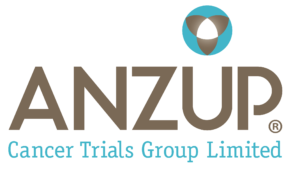Below the Belt Award
Shomik Sengupta — 2022
Non-muscle invasive bladder cancer registry
Bladder cancer is a common condition. Reliable sources of information on bladder cancer treatment and outcomes in Australian patients are not limited. This proposal is to develop a platform for collecting information on patients diagnosed and treated for bladder cancer. The main aim will be to utilise the information to improve treatment in the future. The platform would also allow us to plan and run some studies to compare and assess different ways of treating bladder cancer.
Most bladder cancers present at a stage prior to invasion into the. Detrusor muscle layer, known as non-muscle invasive bladder cancer (NMIBC). NMIBC is particularly susceptible to repeated recurrences, and hence necessitates periodic cystoscopic surveillance. This poses a significant burden for patients, carers and the health care system. Additionally, a subgroup of NMIBC can progress onto invasive or even metastatic disease, which requires morbid treatment, including radical surgery, radiation therapy or chemotherapy, and can prove to be potentially lethal.
Surgical resection is the mainstay of treatment for NMIBC, but is often combined with intravesical chemotherapy or immunotherapy (using BCG). There is some high-level evidence to guide the management of NMIBC, but optimal treatment and follow-up is not always implemented in Australian centres [unpublished data].
Unfortunately, data collection on NMIBC in Australia is currently very limited. Statutory state-based cancer registries often have an inaccurate dataset on bladder cancer as some NMIBC is classified as in-situ cancer and therefore excluded. Hence there is a critical need for clinical registries to collect data on NMIBC.
Local experience with the Prostate cancer outcomes registry (which has now expanded internationally and had major impact on prostate cancer data collection and management) and the more recently developed ACCEPT, BLADDA and ACCEPT-U registries have shown the value of setting up platforms and mechanisms for prospective data collection. A Canadian consortium has an existing data collection on NMIBC [https://bladdercancercanada.org/en/] and have agreed to share their data fields to enable the rapid development of a redcap database to collect. Australian +/- New Zealand data from interested centres. The Biogrid collaborative in Australia provides a mechanism to facilitate data collection across multiple sites as well as setup linkages to other databases such as MBS and PBS to facilitate additional analyses.
This registry would provide reliable data on NMIBC, lead to analytical outputs from the data itself as well as external linkages, facilitate quality improvement through data feedback to participating sites and potentially allow registry-based studies to be run.

